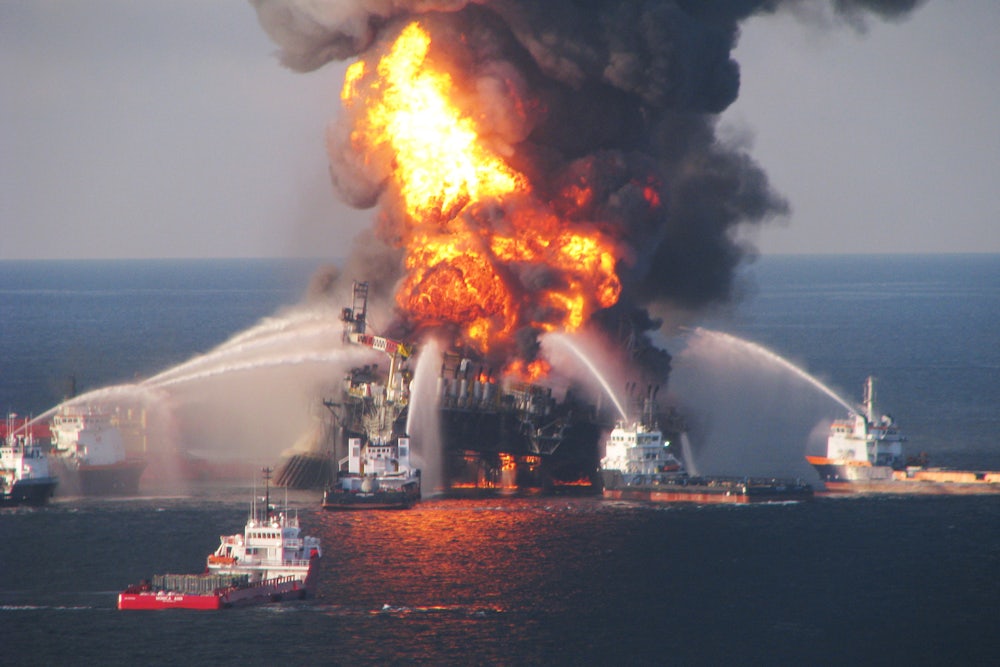The Wall Street Journal reported on Monday that the Trump administration plans to relax safety regulations for offshore oil producers that were put in place after the historic BP oil spill in 2010. The action comes at the direct request of the oil industry, according to the Journal, which claims the rollback will save the industry “more than $900 million over the next 10 years.” Those savings will come from the elimination of “burdensome” safety requirements:
The proposed rule would relax requirements to stream real-time data on oil-production operations to facilities onshore, where they currently are available to be reviewed by government regulators. It also would strike a provision requiring third-party inspectors of critical equipment—like the blowout preventer that failed in the Deepwater Horizon case—be certified by [The Bureau of Safety and Environmental Enforcement].
This is just the latest regulatory rollback not only for the fossil fuel industry, but for oil in particular. The tax bill signed into law last week allows oil production in the Arctic National Wildlife Refuge, which had previously been off-limits due to dangerous, icy conditions and ecologically sensitive environment. The bill’s corporate tax cut is also expected to add $1 billion in profits to U.S. oil and gas exploration and production companies. And here’s a short list of other actions the Trump administration has taken at the oil industry’s request:
- In February, Trump repealed a regulation that required oil companies to disclose any payments made to foreign governments.
- Trump signed an executive order in April “to expand offshore drilling in the Arctic and Atlantic Oceans, as well as assess whether energy exploration can take place in marine sanctuaries in the Pacific and Atlantic.”
- Regulations to reduce emissions of methane—a powerful greenhouse gas—were put on hold for one year while the Trump administration considers weakening or repealing them.
- Trump’s Interior Department is speeding up the approval process for oil and gas companies that want to lease on public lands, and ordering more lease sales in general.
- Upon taking office, Trump approved both the Keystone XL and Dakota Access oil pipelines. (The future Keystone XL remains unclear.)
Trump is bolstering coal as well as oil. His administration ended the moratorium on new coal leasing on public lands, for example, and is beginning to repeal numerous regulations on the disposal of toxic coal waste. But most of his environmental actions affect all fossil fuels, and the tax bill only included specific provisions to bolster oil; nothing there for coal. So while the president’s favorite public relations stunt may be parading coal miners in front of television cameras, his policies suggest what his favorite fossil fuel really is.
